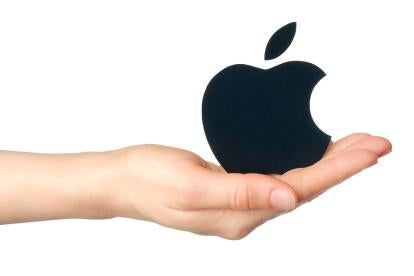“iPhone.” “Technological innovation.” “Jobs.” These are the words that come to mind when you think of technology giant Apple, Inc. You can now add “employee theft screening” to this list. On November 7, the Honorable William Alsup of the United States District Court for the Northern District of California issued an order granting Apple’s Motion for Summary Judgment as to each and every remaining claim brought against Apple by a class of approximately 12,400 former and current Apple employees employed in California.
The class action lawsuit came about as a result of Apple’s implementation and enforcement of its “Employee Package and Bag Searches” policy. Growing concerns in 2009 with employee theft of its products from Apple’s retail stores led the company to institute the written policy, which imposed mandatory searches of employees’ bags, purses, backpacks or briefcase, whenever they left the store. The searches were conducted across all 52 Apple retail stores in California. The policy requires employees finishing their work shift to find a manager or member of the store’s security team to search their bags and packages before leaving the store. Employees who fail to do so and simply leave the store at the end of their shift are subject to disciplinary action, up to and including termination.
According to the employees, the security checks were not quite as efficient as some of your favorite iPad applications. Employees claimed managers and security guards were not always available to conduct the searches for various reasons, resulting in lengthy delays to begin and complete the search. Although some employees claimed that bag searches in front of customers were “demoralizing,” it is highly unlikely this practice would have resulted in a lawsuit if Apple paid employees for the time it took to check their bags after the end of their shift. However, as Judge Alsup’s decision explains, Apple’s “[e]mployee time-keeping systems were generally kept within the store, so employees had to clock out prior to undergoing a search, and their recorded hours worked did not account for the time waiting for a search to be completed.”
So that’s how 12,400 Apple employees working for 52 different Apple stores across the state of California came to sue their former and/or current employer. The lawsuit included claims under both the Fair Labor Standards Act (“FLSA”), as well as various California wage and hour laws. According to Bloomberg, a law professor familiar with the case estimated Apple could have been slapped with a $60 million tab for unpaid wages and penalties, had things gone the employees’ way.
Judge Alsup, however, ruled against the employees. Most significantly, after the Apple employees initiated their lawsuit, the United States Supreme Court determined in the nearly identical matter of Integrity Staffing Solutions, Inc. v. Busk et al. that the time warehouse workers spent undergoing antitheft security screening after clocking out but before leaving the workplace each day is not compensable under the FLSA. In its unanimous decision, the Justices reasoned that the required security screenings were not “closely related activities… ‘integral and indispensable’ to another principal activity the employees were employed to perform” and were therefore not compensable “principal” activities within the FLSA. They explained that “an activity is integral and indispensable to the principal activities that an employee is employed to perform – and thus compensable under the FLSA – if it is an intrinsic element of those activities and one with which the employee cannot dispense if he is to perform his principal activities.” Thus, although the screenings may have been in some way related to the work that the employees performed at the warehouse, time spent waiting for screenings was not compensable because “the employees could skip the screenings altogether without the safety or effectiveness of their principal activities being substantially impaired.” The Court additionally made clear that its decision applies regardless of whether the security screening is only for the employer’s benefit.
The Integrity Staffing decision resulted in the immediate dismissal of the Apple plaintiffs’ FLSA claims, leaving only their California wage and hour claims. To resolve the remaining state claims, Judge Alsup was required to consider whether under California law the employees were subject to the control of their employer during the time the searches were conducted. Judge Alsup found the dispositive issue to be whether the employee could avoid the search by choosing not to bring to work a bag or other items that would subject the employee to the search rule. After finding that “plaintiffs could all freely choose not to bring bags to work, thereby avoiding Apple’s restrictions during exit searches,” he concluded that this “free choice is fatal to their claims.”
So what are the takeaways from the Integrity Staffing and Apple decisions? For one thing, “free choice” is never truly “free.” For another, this is a win for employers who seek to implement antitheft post- and/or pre-shift security screening, even if the screening is entirely for the employer’s own benefit. Employers are not required to compensate employees under the FLSA so long as the screening can be adequately differentiated from the principal activities for which the employee is hired to perform. California employers must take the additional step of determining whether their employee can avoid subjecting himself or herself to the search by making a different decision. While most other states outside of California will likely follow the FLSA, employers should screen their state and local laws to ensure compliance.



 />i
/>i

